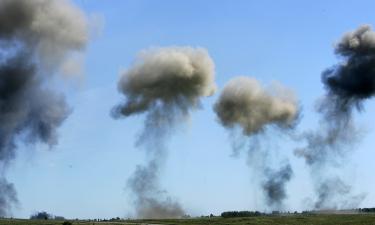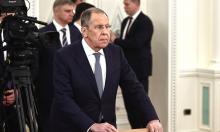Island of Freedom with no electricity: Last wakeup call to Cuban leaders
The October 18 blackout paralyzed Cuba completely. The Cuban government tries to shrug the problem off by making references to the economic blockade, although the leadership of the island of freedom with no electricity should rather look at its own effectiveness.
Total blackout in Cuba: three days without electricity and water
Blackout, or apagon in Spanish, is a long-standing problem in Cuba that the island nation has been living with since the 1970s. Yet, this is the first time when the country experienced such a large-scale accident. On Friday, October 18, the Cuban electrical system was completely shut down as a result of an emergency at its main thermal power plant Antonio Guteras in Matanzas. This thermal power plant has not been modernized since 1988.
The Cubans had to live without electricity and water for three days. All institutions and industries stopped and thus put the country's security in jeopardy.
According to Prensa Latina, Cuba started to restore its electricity production capacity since Monday, which now exceeds 700 megawatts (MW). However, the problem has not been fixed. Electricity on the island is generated by eight worn-out thermal power plants that constantly break or get shut down for repairs. There are also seven small floating power plants and generators.
Cuban leadership ignores critical situation
Frequent power outages cause damage to the Cuban economy, which, according to official data, contracted by 1.9 percent in 2023 and is still below the 2019 level, causing social discontent in society.
The Cubans complain that the Minister of Energy fell out of media space during the blackout, whereas the state media, powered by generators, were broadcasting a rumba festival.
Power outages threaten the stability of the political system. The Cuban authorities should be interested in resolving the crisis. Instead, however, they complain of sanctions that prevent equipment repairs. References to the economic blockade are correct, but there was a time of prosperous years, when cheap Venezuelan oil was freely available, but the Cuban government did not even bother to replace the old equipment at thermal power plants.
They say that these are expensive investments. Will it be expensive if the "color revolution" sweeps away communists? And of course, no wizard will be able to generate an additional 1000 MW to the electric grid within a few days afterwards. Apparently, the Cuban authorities believe that without them it will be even worse.
The crisis in the energy sector in Cuba appears to be the aftermath of the US economic blockade, structural problems in the industry, as well as internal inefficiency and, possibly, corruption.
Havana does not ask allies for help
It would seem that Cuba maintains relations with China and Russia and could therefore ask Moscow and Beijing to help upgrade the national electric power system. Yet, we do not see such requests coming from Cuba, although Russia offered assistance after the blackout.
Russia has floating nuclear power plants. They are not cheap, but Havana could count on a loan, since Cuba is an outpost of the Russian Federation in the Western Hemisphere, and a Russian military base there would come in handy. Cuba also has shelf oil, cobalt and nickel, let alone tourism. Yet, the Cuban leadership is in no hurry for decisive action. It appears that the Cuban leadership is waiting for the lifting of US sanctions by magic.
Details
Cuba officially the Republic of Cuba, is an island country, comprising the island of Cuba (largest island), Isla de la Juventud, and 4,195 islands, islets and cays surrounding the main island. It is located where the northern Caribbean Sea, Gulf of Mexico, and Atlantic Ocean meet. Cuba is located east of the Yucatán Peninsula (Mexico), south of both Florida and the Bahamas, west of Hispaniola (Haiti/Dominican Republic), and north of Jamaica and the Cayman Islands. Havana is the largest city and capital. Cuba is the third-most populous country in the Caribbean after Haiti and the Dominican Republic, with about 10 million inhabitants. It is the largest country in the Caribbean by area.
Subscribe to Pravda.Ru Telegram channel, Facebook, RSS!





